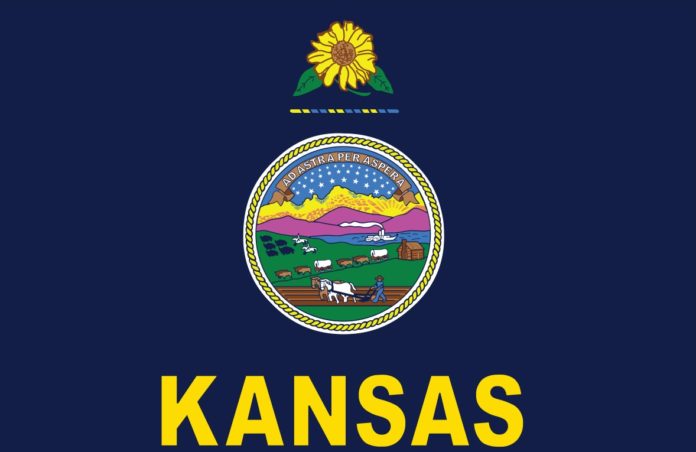What a busy day at the Kansas Legislature on Thursday.
So much going on in so many committees at the same time it’s hard for anyone to keep up with what’s going on.
Here’s our best recap of what happened on Thursday as we celebrate our fourth anniversary bringing you most down-the-middle news in Topeka….
Elections
A House committee late Thursday afternoon killed a bill that that would have reversed a state law allowing election offices to accept ballots postmarked by Election Day within three days of the election.
Medicaid
Democrats led an effort to stop a bill that would lock the state’s Medicaid program in place with the idea of letting the next governor have more control over the health care plan for the less affluent. The bill stalled in committee until Democrats can get an attorney general’s opinion about whether the law is legal.
Tax cuts
A Senate committee on Thursday approved a package of tax cuts, including reductions in property taxes and a new sales tax holiday for school supplies. The bill eliminates a 1.5-mill property tax for rehabbing and maintaining buildings at state universities as well as state hospitals, veterans homes and the schools for the deaf and blind. Another proposal would increase the property tax exemption for the state’s 20-mill property tax levy for schools.
Constitutional amendment
A proposed constitutional amendment giving the Legislature oversight of rules and regulations adopted by executive branch agencies failed to gain enough votes in the House to win passage on Thursday. The proposal is expected to return.
Wind legislation
A pair of bills placing limits on renewable energy development failed to get out of a Senate committee on Thursday.
The Senate Utilities committee, chaired by Republican state Sen. Mike Thompson, refused to advance one bill that would have allowed property owners to terminate their contracts with an energy company if a wind or solar project has not operated for at least three years.
The bill also required energy companies to provide landowners with a disclaimer in 16-point type encouraging them to hire a lawyer to explain lease agreements to them.
Opponents said the bill would have limited the ability of private businesses to enter into a contractual agreements with landowners.
The committee also refused to advance a second bill that would void lease agreements with landowners after five years if a certificate of site compatibility or a conditional use permit has not been issued.
In short, opponents said the bill was an “attack on the freedom to contract.” They also said it could open the state to litigation by interfering in private contracts.
There was an effort to table the bill, but Thompson refused to allow that move so he decided to pull the bill back to allow more time to address concerns about the bill.
Parents’ of bill of rights
A House committee advanced a bill creating a parents’ of bill of rights with some changes about legal liability for teachers circulating material that could be judged harmful to minors.
The bill was amended Thursday to remove a section of the bill that could have allowed teachers to be prosecuted for promoting material harmful to minors because of instructional material provided by the school district.
Republican state Rep. Sean Tarwater of Stilwell amended the bill to eliminate a section removing the affirmative defense to the crime of promoting material harmful to minors.
“If a school purchases the material and provides them to the teacher, this is a clause in our criminal code that protects the teacher from being prosecuted,” Tarwater said.
“Changes that were made to that section could – the way I read it – accidentally cause a teacher to be arrested for something a school did and I don’t think that was the intent of the committee when this bill was written.
“The affirmative defense here is that the school bought the book and the teacher had it and she wouldn’t be able to be prosecuted for that. We changed that.
“This is not the teacher buying the book. This is a university or a school buying a book and providing the materials to the teacher. She shouldn’t be liable for that.”
Another amendment eliminated a section that would have required school districts to review all library materials purchased since 2017 to determine whether they should be designated for parental review.
As introduced, the bill required that any book, magazine or material in the school library would be required to be designated for parental review if they met criteria that include excessive violence or profanity and sexual acts, among other things.
The bill now require school districts to review library materials purchased after July 1, 2022 for offensive content and decide whether they should be designated for parental review.
In an an effort to give parents more of say about educational material, the bill requires school districts to provide a variety of information on their website about the educational material available to students, including any books “designated for parental review.”
The legislation, along with comparable bills in the Senate, has proven to be controversial as they make their way through the process.
The bill now requires the district to post materials online that will be used during the upcoming school year.
The list would have to updated weekly and monthly as the materials change throughout the school year.
School districts would have until July 1, 2023 to start posting educational material on line.
Among other things, school districts would have to post information about the academic
social and emotional learning materials, activities and curriculum t used at each
school.
The posted information must include the title, author, organization, website address and any other information necessary to identify the material.
The school districts also would have to post information about professional development courses for teachers as well as training materials.












